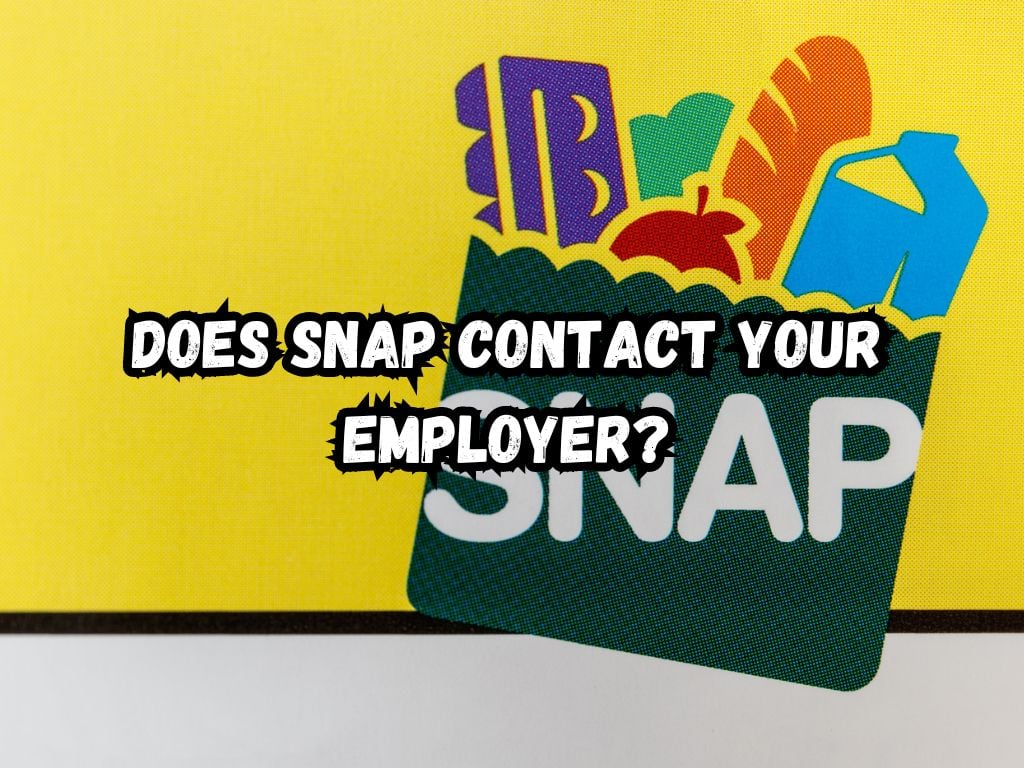Navigating the world of financial assistance programs while maintaining personal privacy can be a daunting task for many.
The Supplemental Nutrition Assistance Program (SNAP), in particular, often prompts questions of confidentiality from participants who might worry about associated stigma or privacy concerns.
One question that frequently arises is, does SNAP contact your employer about their involvement with the program.
Let’s dissect this question to provide a clear understanding for those who may rely on such important support.
Understanding the SNAP Program
SNAP stands as one of the cornerstones of the social safety net in the United States. It’s designed to help low-income individuals and families make ends meet by supplementing their food budget. Here’s how the program works:
Program Operation: A participant receives an Electronic Benefits Transfer (EBT) card, which is preloaded each month with the amount of benefit they are eligible for.
This card can be used like a debit card to purchase eligible food items at participating stores.
Eligibility: Eligibility for SNAP primarily hinges upon household income, assets, and size. The program clearly outlines these requirements, ensuring transparency in the application process.
Benefits: SNAP provides financial assistance specifically earmarked for food purchases, thus aiding participants in maintaining a nutritionally balanced diet, despite financial hardship.

Does SNAP Contact Your Employer
The short answer to this question is a resounding no. SNAP prides itself on discretion and places high importance on the privacy of its participants. However, to fully grasp the nuances of this assurance, let’s break down the situations that might cause concern:
Income Verification Process: There may be times when SNAP requires confirmation of income to either assess initial eligibility or during the periodic review process.
During such verification, an employer may be contacted to confirm employment status or wages. This is a standard part of many financial assistance programs and does not serve to disclose any information about SNAP participation specifically.
Employer Incentives: Some employers may encourage their employees to apply for SNAP as a part of benefits counseling, particularly if their wages fall within the eligibility range for SNAP.
Employers commonly do this as a means of ensuring their employees are able to access all available resources to maintain a healthy living standard.
Legal Protection for Participants: There are federal and state confidentiality laws that protect the privacy of SNAP participants, preventing the program from sharing personal information without consent.
Privacy in SNAP
It’s essential for prospective and current participants to understand the lengths SNAP goes to in protecting personal information:
Confidentiality Standards: Information about an applicant’s SNAP participation is not public and can only be disclosed for purposes related to program administration or when required by law, such as in the case of a court order.
No Disclosure without Consent: Employers, landlords, and other entities do not receive information about one’s SNAP participation unless specifically authorized by the participant.
Protections at the Point of Sale: Using an EBT card looks similar to using any other debit or credit card, providing discretion at the checkout counter.

Frequently Asked Questions
Do Employers Know If You Use SNAP?
Generally, employers will not know if their employees use SNAP unless the employee voluntarily discloses this information. Due to stringent privacy laws, this information is secured and managed to prevent any unwarranted disclosure.
Can a Job Application Ask If You’ve Relied on Welfare Programs Like SNAP?
No, employers legally cannot ask about your participation in welfare or financial assistance programs like SNAP on a job application. This sort of inquiry can be seen as discriminatory under the Equal Employment Opportunity Commission (EEOC) guidelines.
Conclusion
The interplay between financial assistance programs and employment can often lead to a cloud of uncertainty for many — casting shadows on the freedom to seek help without jeopardizing personal privacy.
It’s essential to remember that SNAP is designed with the privacy of its beneficiaries at the forefront. Employers are generally not informed of one’s participation in SNAP, ensuring that individuals can obtain necessary assistance without fear of undue exposure or stigma.
In an economy where financial stability can be tenuous, the assurance of confidentiality provided by SNAP is not merely a procedural guideline but a foundational pillar of respect and dignity for those it serves.
SNAP offers a lifeline to nutritious foods for individuals and families facing economic challenges. Understanding that this support comes without the risk of employer notification can alleviate concerns for many, allowing them to take full advantage of this crucial program.
We hope this exploration of SNAP’s privacy policy offers a sense of security to current and potential participants. Trust in the confidentiality of SNAP underscores the program’s mission to serve those in need with the utmost integrity and respect.


 Tags:
Tags:










